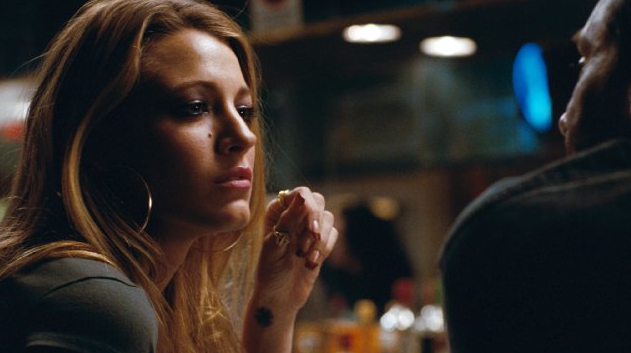The Town
I’m sorry not to like The Town—Ben Affleck is such a nice guy and Gone, Baby, Gone was such a promising directorial debut. But then I may not be the right person to review this movie that I’m sure holds enormous appeal for the 18-30 male demographics. I’m not that much into weapons, shootouts—or even into bank robberies unless we’re talking “Dog Day Afternoon.”
Indeed, undisputed top billing in The Town belongs to weapons. The movie, an NRA member’s dream, features them in practically every scene: Assault weapons, semi-automatic Glocks, submachine guns, every imaginable type of handgun, drive the action, spraying thousands of bullets that shatter vast expanses of glass, annihilate locales and waste a number of people. Second spot belongs to vehicles—ambulances, police cars, vans, get-away cars. They get smashed up, they overturn, they crash into each other in sickening piles of wreckage, and still manage to get engaged into ever more chases.
At least one of these is edge-of-your-seat gripping, quite a feat given the surfeit of car chases since the unforgettable first major one in Bullitt. Then come Boston and its Charlestown neighborhood, “the town” of this story. Over and over, and again over, we’re treated to pretty shots of the Bunker Hill monument as seen from above, punctuated by a soundtrack of really loud percussion instruments. Next major star is the f-word. With very few exceptions, the entire script consists of fuck this, fuck that, fuck you and your Uncle Elmer too. Surely even hardened criminals and the cops determined to nab them have more than a one-word vocabulary.
So, let’s see. What do we have here? Weapons, check. Vehicles, check. The town, check. The f-word, check. Oh, and characters. Ben Affleck has cast himself as Doug MacRay, the conflicted, sensitive soul haunted by a childhood trauma. Symbolically rejecting his life of crime, he turns away from his slutty main squeeze (Blake Lively) to fall for the bank manager (lovely Rebecca Hall) whom he had taken hostage in an earlier heist and who, for a while, remains ignorant of her new boyfriend’s darker side.
Their romance, such as it is, remains barely sketched out and tentative, the most remarkable thing about the lone sex scene the confirmation of my suspicion that male chest hair is making a comeback. As MacRay’s lieutenant, Jeremy Renner dutifully reprises the tough maverick role that served him well in The Hurt Locker, and as his FBI nemesis, “Mad Men’s” good-looking Jon Hamm gives a credible performance.
Years ago, Martin Scorcese embarked on a stellar career with a few films that are now part of the canon, before (much like Woody Allen in another genre) becoming mired into telling the same New York gang-related story in film after film—or is it just one long one? Here’s hoping that Ben Affleck, still wet behind the ears and probably not as gifted as the bushy-eyebrowed maestro, doesn’t get similarly lost in the sands of Charlestown crime that he has been exploring in his two films.
And what’s a nice guy like that doing there anyway? Crime doesn’t suit him, which is why Doug MacRay whom he plays wants to get away and start a decent life raising a family with the woman he loves. Which is why director Affleck, after giving us two very long hours of bad men doing bad things, chickens out with a weirdly politically correct statement at the end that I have to paraphrase as I was too surprised to jot it down. It goes something like this: although the Charlestown neighborhood of Boston is famously criminal, very nice people also live there and this film is dedicated to them. Really?







